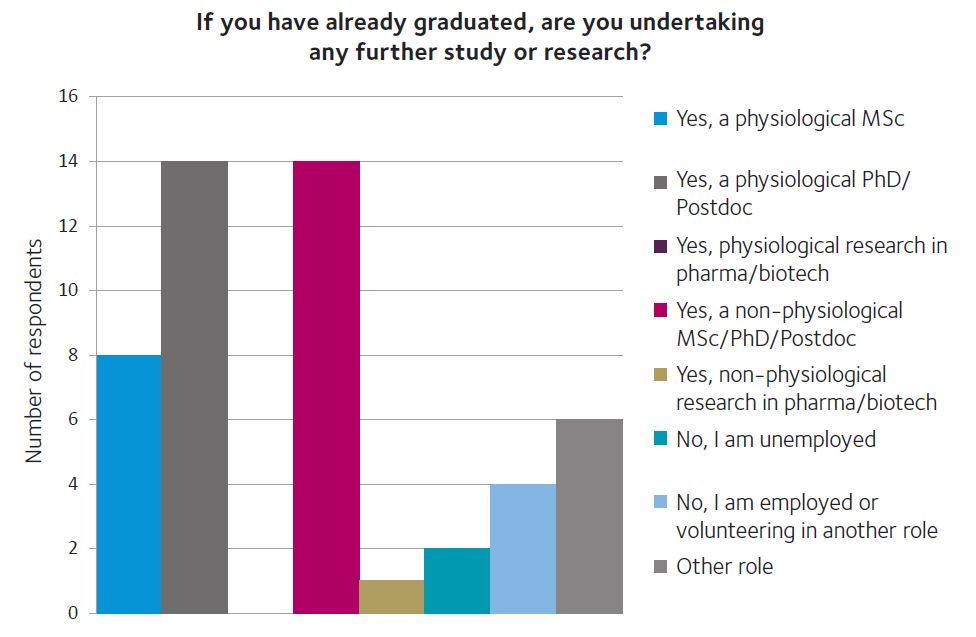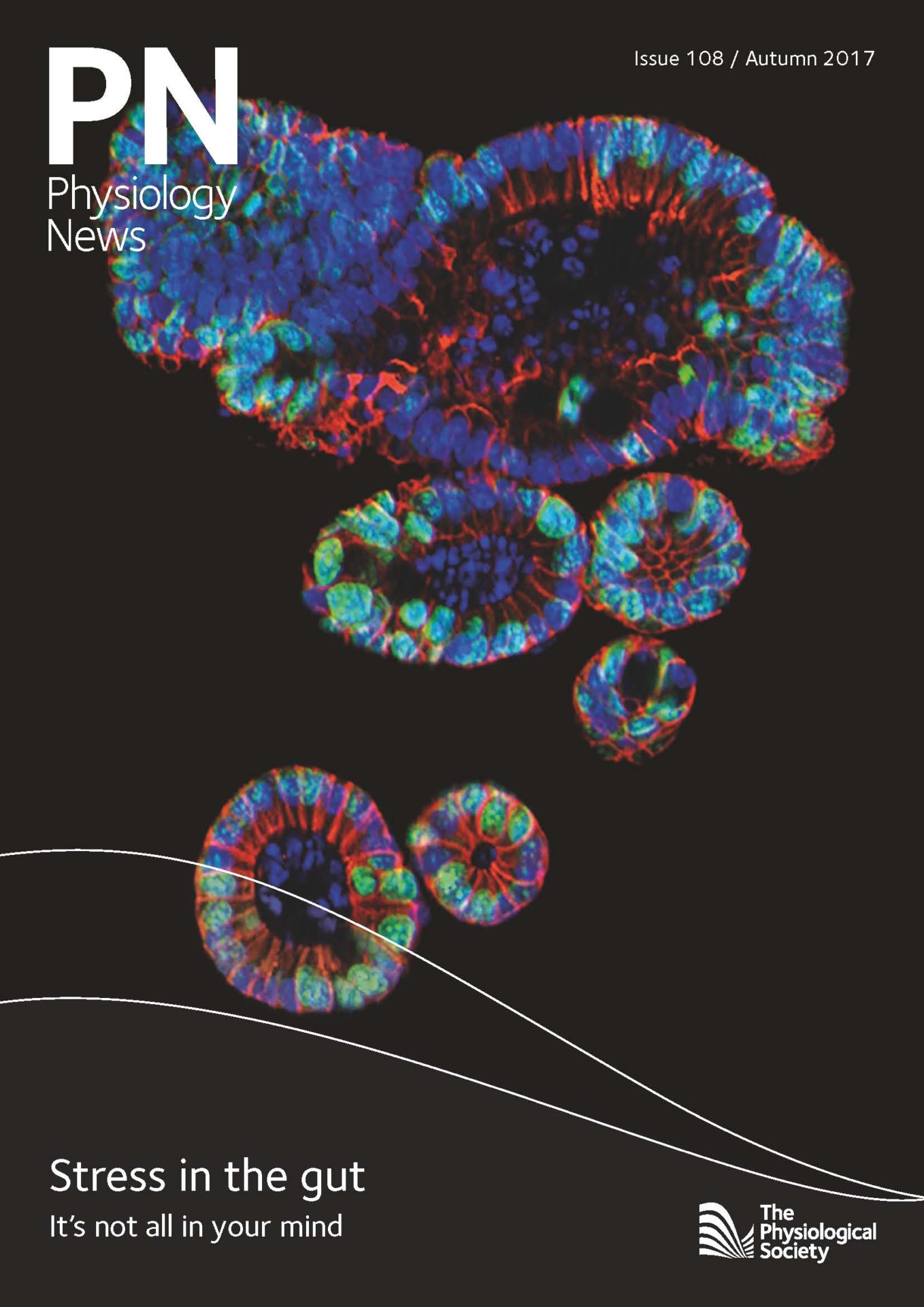
Physiology News Magazine
Vacation Studentship Scheme: survey of 2013-2015 awardees
News and Views
Vacation Studentship Scheme: survey of 2013-2015 awardees
News and Views
Angela Breslin
Education Manager, The Physiological Society
https://doi.org/10.36866/pn.108.14
For over 20 years, The Society has been running the Vacation Studentship Scheme (VSS), offering hundreds of undergraduates the opportunity to experience real physiology research over their summer break, and we were keen to find out what impact this has had on their careers. To this end, we surveyed all the students who received a vacation studentship (VS) in 2013-2015 earlier this year, to ask them what they are doing now and whether the VSS influenced their career choices.
Of the 128 awardees contacted, we were pleased to receive 50 responses, and will engage a current undergraduate this summer to gather more feedback in the form of interviews and case studies. Further details about this work will be published in a later issue of Physiology News.
With regard to the survey, we were not surprised to learn that 92% of respondents have already graduated and that those who have not are currently studying medicine. Of the 92%, however, it was interesting to see that 84% are still in academia, with a majority studying a physiological MSc/PhD/postdoc (51%) over a non-physiological MSc/PhD/postdoc (33%). We were pleased to see such a significant proportion pursuing physiology after graduation.
From the variety of other routes pursued (i.e. graduate medicine, banking, event management), it’s clear that awardees developed a range of transferable skills along the way too. Indeed, 94% of respondents said that the VS was either ‘very helpful’ or ‘quite helpful’ in developing their skills more broadly, frequently citing ‘communication’, ‘data handling’, and ‘team working’ as skills they’d developed, to name but a few.

As the VSS is intended to offer a ‘taster’ of what real physiology research is like, it is to be expected that some students will not pursue a research career, and other professions will benefit from the skills they can offer too. It is far better that they reach this decision after a summer project than halfway through a PhD. One respondent stated, ‘It just wasn’t the right style of work for me, helped me realise that research wasn’t what I would like to do’.
At the other end of the spectrum, 80% of respondents said that the VS ‘improved’ their perception of science research, and comments reflected very clearly how much they valued the authenticity of the experience in highlighting the practicalities but also the rewards involved with doing research.
Overall, 72% of respondents indicated that the VS had a ‘pivotal’ or a ‘high’ impact on their career plans, again demonstrating how important this scheme really is in informing career choices regarding physiology. Of those who indicated a ‘pivotal’ impact, it is evident that some students would likely not have pursued research without the VSS: ‘This vacation studentship was fundamental to me continuing a career in scientific research and allowed me to gain a PhD studentship’. One student was even offered a PhD project by their VS supervisor.
Looking to the future, there were some really useful suggestions on how The Society could add more value to the VSS, the most popular of which were, ‘opportunities to present the project’, ‘training and networking opportunities’, and ‘more awareness’. We do, in fact, offer VS awardees the opportunity to present their project through the Rob Clarke Award scheme, but it’s clear from the survey that we need to raise more awareness of this and other opportunities at The Society.
With this in mind, we are making the VSS a Member-only scheme from 2018 onwards, so that VS awardees are kept informed of any opportunities through the regular Member communications. Membership is free for undergraduates, and we will explore other ways in which we can support the VSS in future.
If you’d like to find out more about this survey or discuss the VSS more generally, please contact Angela Breslin at abreslin@physoc.org
